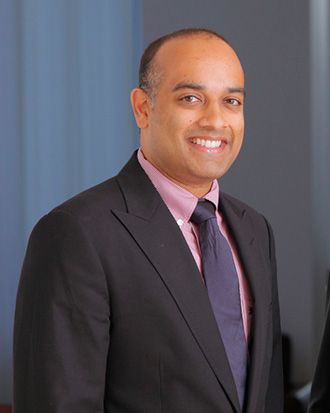It doesn’t take a warrior to beat cancer. It takes a treatment that works.
This is an excerpt of a story that appeared in The Washington Post. Read the original here.
“Am I strong enough to beat this cancer?”
I wonder if Sen. John McCain (R-Ariz.) asked himself this question when he was diagnosed recently with a deadly glioblastoma brain tumor.
When I was diagnosed with cancer in 1984, that question was certainly at the top of my own list. Just 26 at the time, I was pretty much untested: My greatest challenges so far had been taking the SATs and coming out as a gay man.
I certainly was no John McCain, who has survived five years of torture as a prisoner of war in Vietnam, three bouts with melanoma (one of the deadliest of cancers) and three decades in the Senate. If anyone has the strength to prevail over cancer, it’s McCain. But is strength, or toughness — or any personality trait — really what it takes?
At the time of my diagnosis, a friend gave me a best-selling book, “Getting Well Again,” that asked this hard question: “Why do some patients get well and others die when the prognosis is the same for both?” I found the answer deeply upsetting: The authors had identified a “cancer personality [that] can contribute to the onset and progress of cancer.” In other words, the onus was on me. If I failed, I had no one to blame but myself.
This theory of personality has been much on my mind since McCain’s diagnosis became public. Emerging from the outpouring of tweets and statements that followed was the notion that the senator is a warrior par excellence who will surely win his latest battle.
For example, Vice President Pence tweeted, “Cancer picked on the wrong guy” because he is “a fighter.” Pence’s comment reminded me of another book, “The Type C Connection: The Behavioral Links to Cancer and Your Health,” which argues that the personality traits of some people make them prone to cancer. Typically, “Type C” individuals are the antithesis of warriors: They are unassertive people-pleasers who repress their emotions.
Warrior or people-pleaser, these character-driven approaches suggest that you are responsible for your outcome. Both are just wrong.
“There’s been pushback against the idea that this warrior mentality is necessary for a successful outcome,” Rohan Ramakrishna, M.D., a neurosurgeon at Weill Cornell Medicine in New York who specializes in brain tumors, told me in a phone interview.
Putting it bluntly, Ramakrishna said, “Your response to treatment is a biological one, not a psychological one.”
Instead of focusing on McCain’s character traits, Ramakrishna prefers that we take notice of his highly supportive family and that he is being treated by a top team at the Mayo Clinic in Arizona, one of the country’s best cancer facilities. (McCain’s generous congressional health plan is also a likely factor in securing top treatment, which is correlated with longevity.)
People use warrior metaphors with good intentions, Ramakrishna explained, but the unfortunate flip side is the implication that it’s your own fault if the cancer comes back, or if you die. Those who triumph over more-curable diseases, such as cancers that have effective treatments, aren’t tougher than those facing glioblastoma — it’s just that the odds are more in their favor.
“You don’t want people to think that their outcome is in their hands,” he said. “If someone’s cancer progresses, it’s a failure of our treatments, plain and simple.”
....



